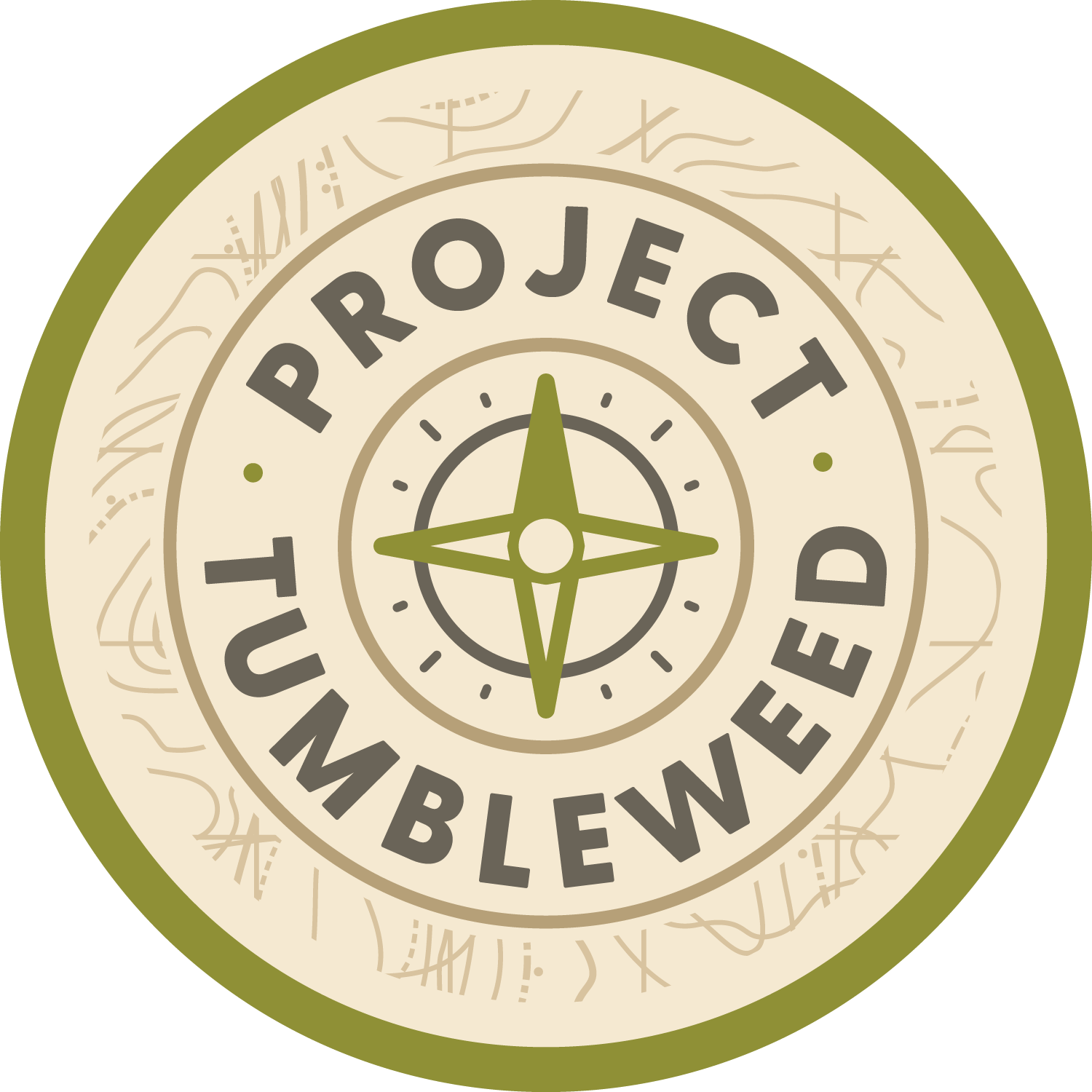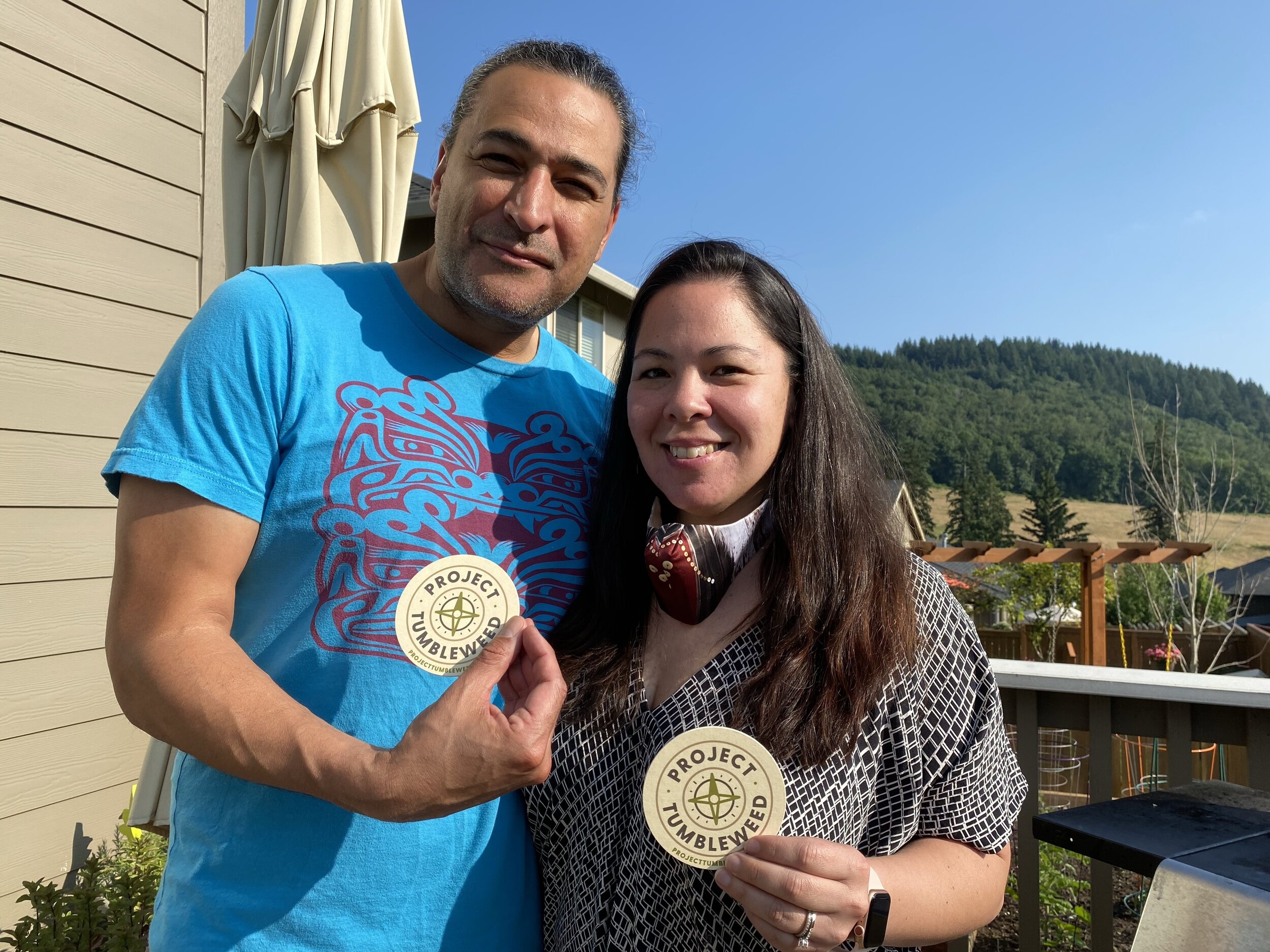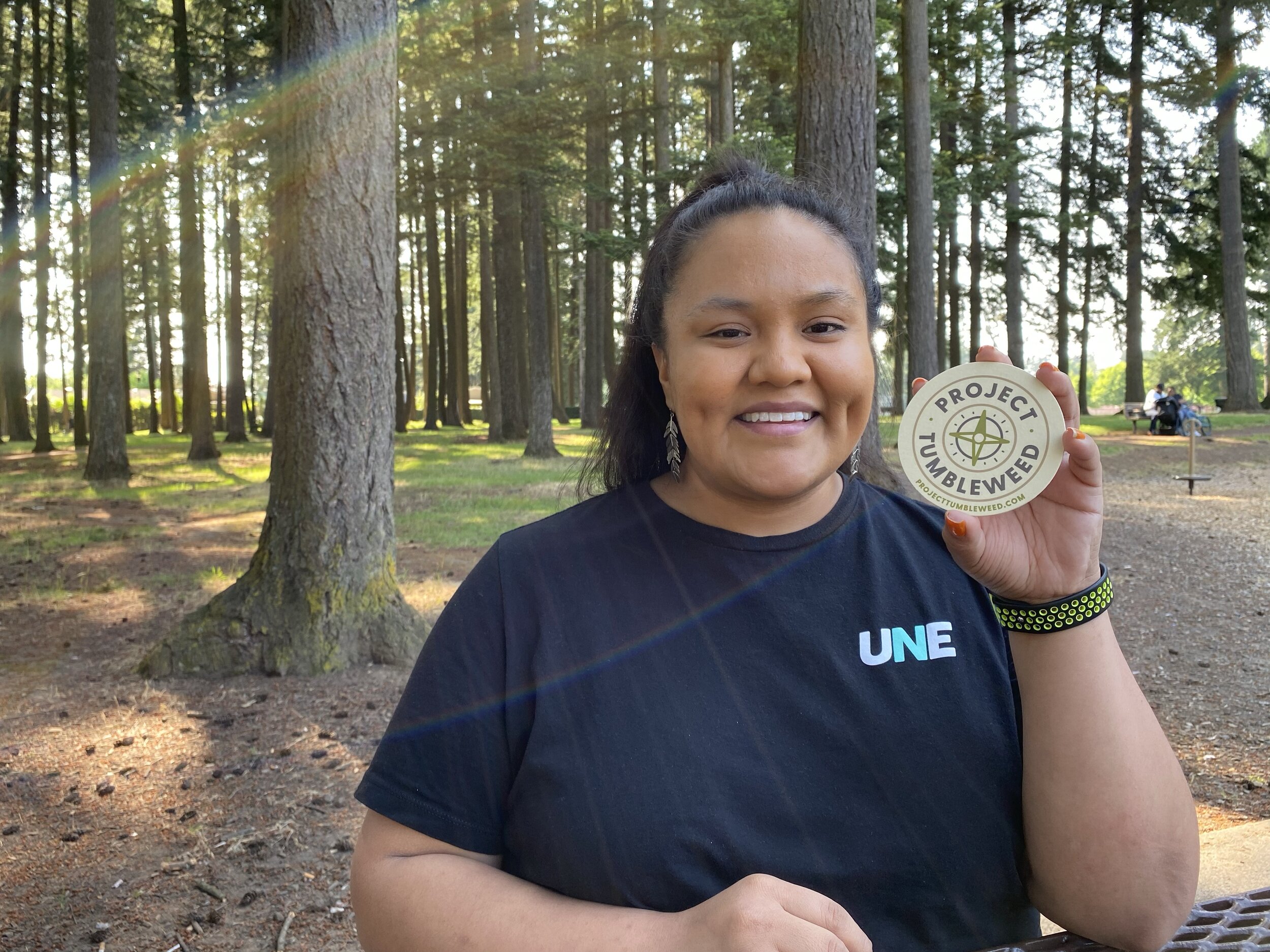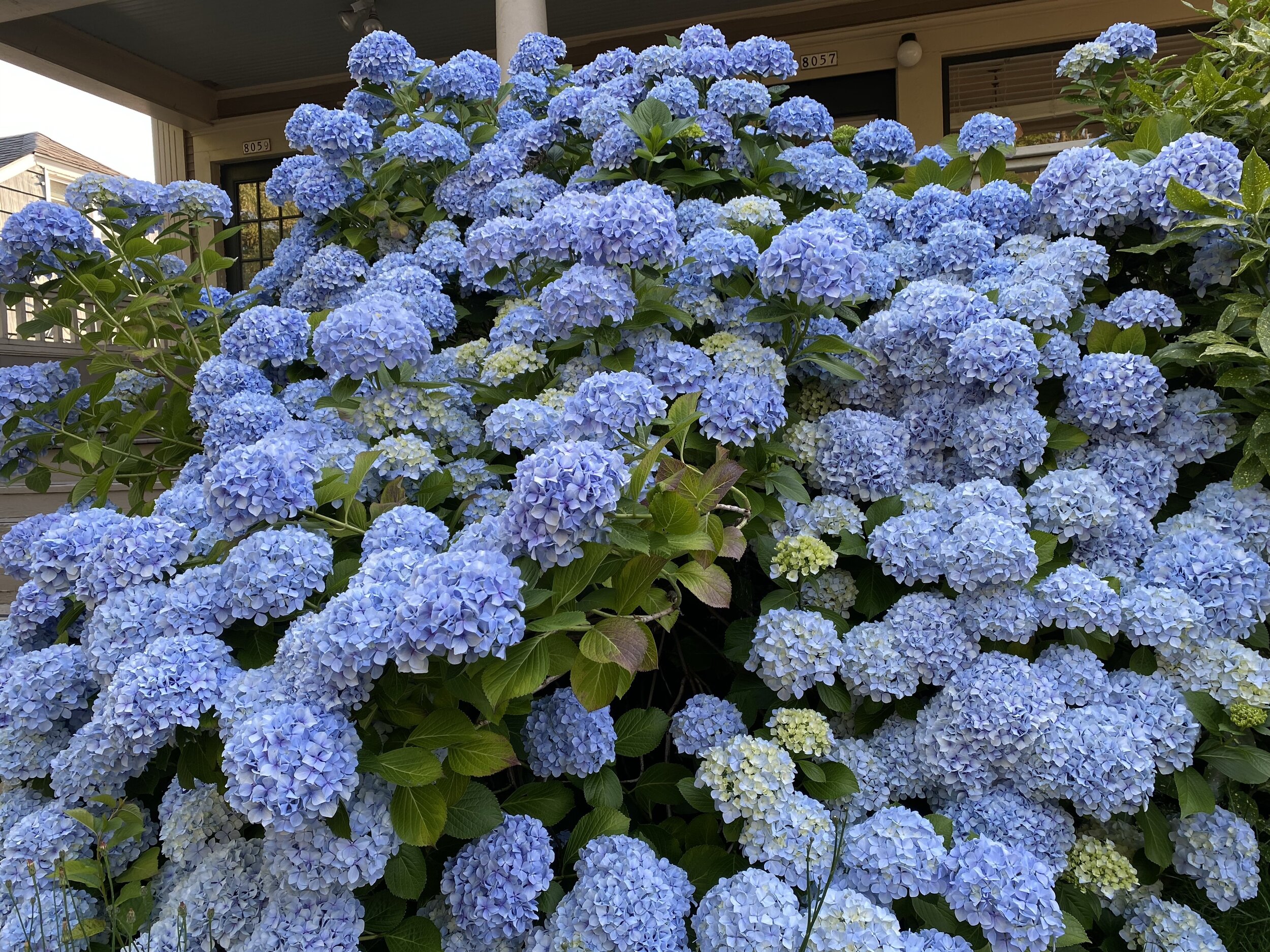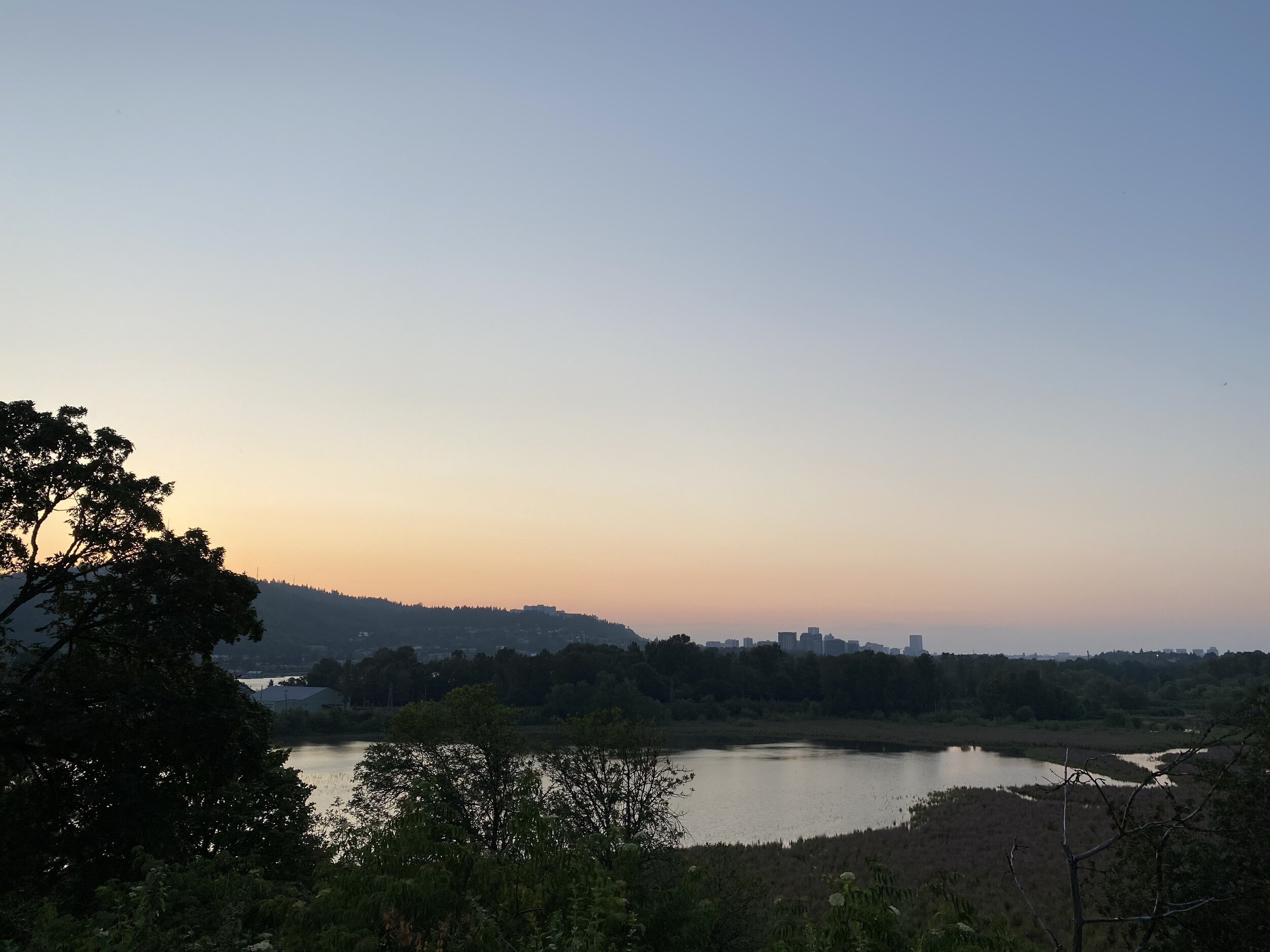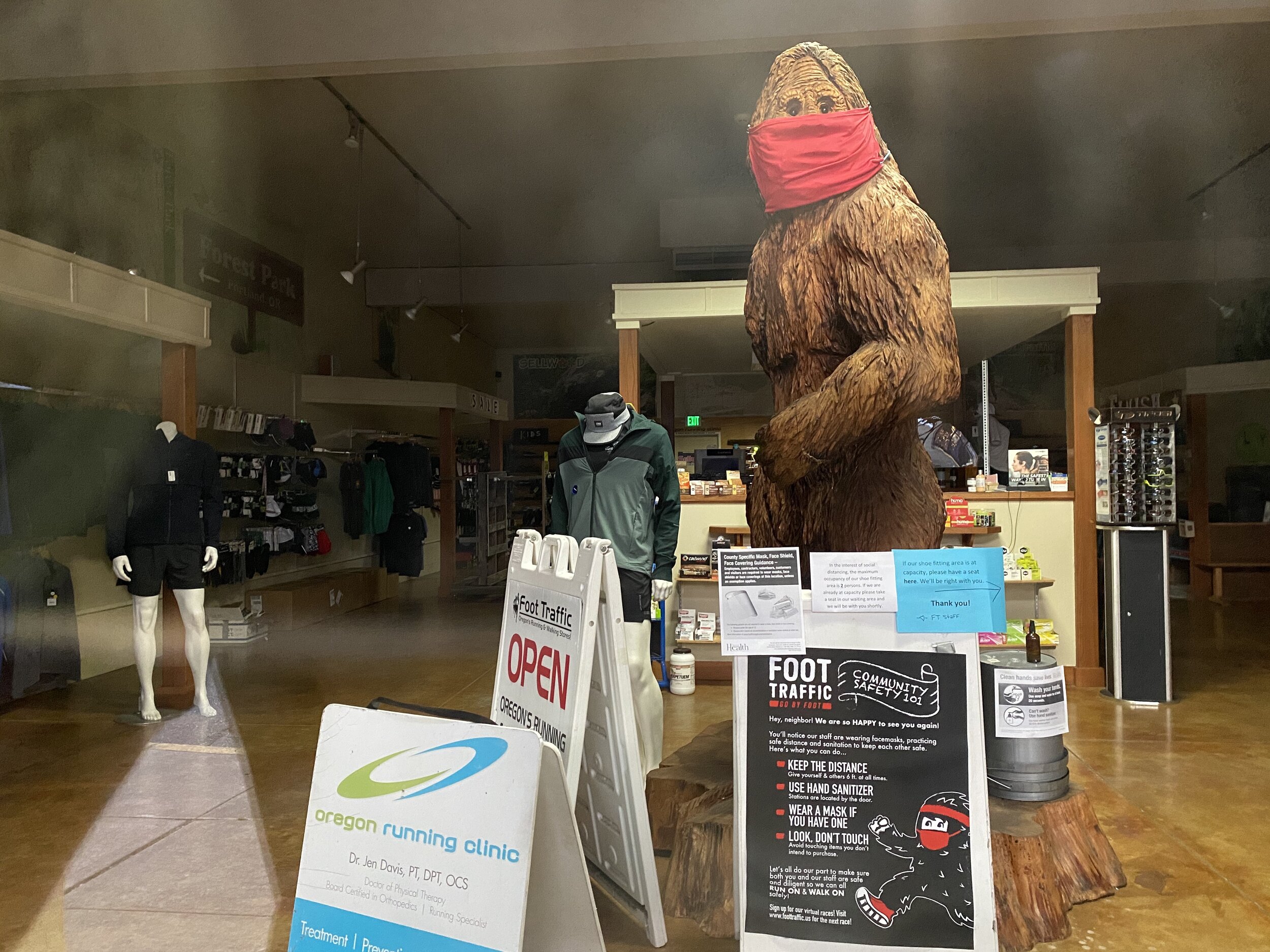Not the First
Driving from Eugene to Portland, I followed the Willamette River through lush, verdant terrain. This is the farmland that attracted so many to travel across the Oregon Trail in wagons across the plains, mountains, and high desert. Often overlooked in the classical heroic settler story is that people have been living here since time immemorial.
As I shared early in this journey, the human mind seeks compelling narratives. The power of story is undeniable, so it’s a natural extension of that logic to say the power of being left out of stories can be devastating. In talking with the four people who I spent time with yesterday in the Portland area, that became abundantly clear.
My series of three interviews started with James Alan Parker and Se-ah-dom Edmo. He is Chippewa Cree and the executive director of the Oregon Native American Chamber. She is Shoshone-Bannock, Nez Perce, and Yakama and serves as the executive director of the MRG Foundation. Both are working to help the indigenous communities navigate the compounding effects of COVID on what has been hundreds of years of crisis.
I then headed over to talk with Tory Campbell, who is the director of economic development for Portland Prosper. His wife and he also operate their family business, Felton & Mary’s, that celebrates his grandparents, who had operated a beloved restaurant in southeast Portland. Tory has helped lead a dramatic shift in how his agency is helping businesses in the city recover and innovate during this disruption by emphasizing equity for minority-owned businesses. He’s an avid urban farmer with an impressive array of chickens, bees, and backyard garden beds.
Rounding out the interviews, I joined Amanda Squiemphen-Yazzie who is of the Federated Tribes of Warm Springs and serves as campaign manager for Carina Miller, state senate candidate. Her two sisters and she have launched the Chuush Fund and are raising money to provide cleaning drinking water to the Warm Springs reservation. She squeezed in our conversation ahead of a Black Lives Matter protest happening in Portland today, which will bring together Blacks, Indigenous, and People of Color (BIPOC) to reclaim the space of a city park named after George Armstrong Custer.
I finished the day picking up my son’s possessions from Troels Adrian, who serves as one of the 118 producers this real-time documentary and was kind enough to go to Eugene weeks ago to clean out Ethan’s dorm room. We feasted on a very tasty vegan meal from a neighborhood food cart and ate in the light of sunset on the Sellwood Park bluff overlooking the Willamette River and the Portland skyline.
What became clear to me in all these conversations is that a solidarity has emerged amongst marginalized communities and leaders from those communities have risen to leadership roles within organizations that make a direct impact on the complicated issues that have been compounded by the pandemic. It gives me hope for this moment we’re living and for the good that rise from it.
What do you know about the indigenous people of America? What do you know about the marginalized communities of color? How can you educate yourself to understand their challenges and how they connect to yours?
